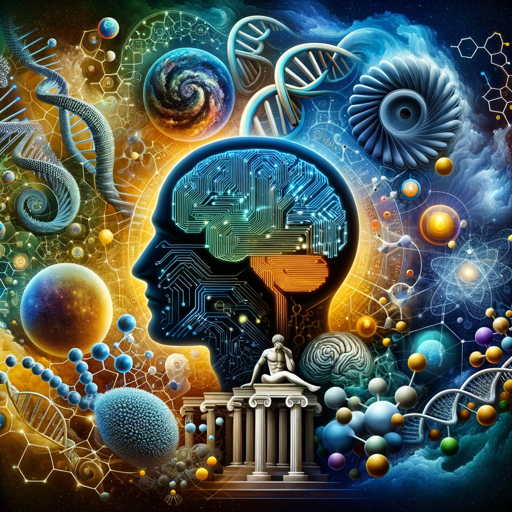Cognitive-Theoretic Model of the Universe GPT
What is Cognitive-Theoretic Model of the Universe GPT?
Integrating AI, neuroscience, and philosophy to explore consciousness and reality. [UPDATED 12/16]

- Added on December 21 2023
- https://chat.openai.com/g/g-9DIB7c2ns-cognitive-theoretic-model-of-the-universe-gpt
How to use Cognitive-Theoretic Model of the Universe GPT?
-
Step 1 : Click the open gpts about Cognitive-Theoretic Model of the Universe GPT button above, or the link below.
-
Step 2 : Follow some prompt about Cognitive-Theoretic Model of the Universe GPT words that pop up, and then operate.
-
Step 3 : You can feed some about Cognitive-Theoretic Model of the Universe GPT data to better serve your project.
-
Step 4 : Finally retrieve similar questions and answers based on the provided content.
FAQ from Cognitive-Theoretic Model of the Universe GPT?
The Cognitive-Theoretic Model of the Universe (GPT) is a theory that describes the universe as consisting of two separate components: the physical and the cognitive. It is based on the idea that the universe is fundamentally a product of deliberate choices made by cognitive entities. The physical component of the universe is described as a network of properties that exist in a given space-time, while the cognitive component describes both the capability of understanding the nature of physical properties and the ability to influence them.
The Cognitive-Theoretic Model of the Universe is an attempt to bridge the gap between the physical and mental aspects of reality. The implications of the theory are that our physical and mental universe can be seen as interdependent elements of a larger network of causes and effects. This could have profound implications for our understanding of consciousness, free will, and morality, as well as for our philosophical and scientific understanding of the universe.
The Cognitive-Theoretic Model of the Universe GPT can be used to provide insight into the physical and mental nature of the universe. It can be applied to explain the relationship between physical and mental phenomena, and can also be used to understand the emergence of complex systems from simpler ones. The theory can also be used to explore the implications of free will, provide insight into the nature of morality, and to understand the dynamics of the universe.
